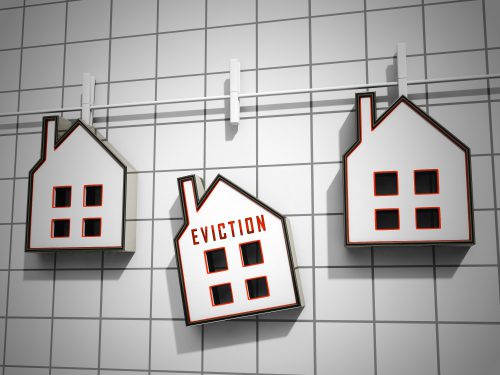What to Do When Your Landlord Tries to Kick You Out

03Jan
What to Do When Your Landlord Tries to Kick You Out
There are times when a landlord tries to get rid of you or force you out of your lease without going through the full eviction process. Landlords often do this because they want all the benefits of having your apartment back without going to court and winning their case. However, this is illegal; typically, your landlord can't force you to go without a "just cause" or without legally buying you out.
Self-Help Evictions
This form of unlawful eviction is referred to as "self-help" because landlords are doing it by themselves and not involving the legitimate eviction system. Instead of going through expensive legal proceedings, they use tactics to get you out of your home, such as changing the locks or turning off your utilities so that you can't function.
Some landlords even illegally enter your place, take your belongings, and throw them out on the street. Even if you haven't paid your rent, landlords can't resort to these tactics; if you're dealing with an illegal lockout or utility shutoff, you can call the police.
Fortunately, there is also civil relief if this happens to you and consequences for your landlord. In San Francisco, when your landlord practices self-help, they're liable for damages and fines for up to $100 a day for each day that they're in violation; this counts for all the days that you're locked out.
Fake Eviction Notices
Another way that a landlord can try to kick you out without the eviction process is to use a fake eviction notice or to merely tell you that you're evicted. Here are tips to figure out whether the notice you receive is real:
- The eviction notice is in writing: A clue that your eviction may not be legitimate is if it's not in writing. It's not enough for your landlord to tell you in a conversation or a phone call. If it's in writing via text message, it's not an indication of an official eviction.
- It states the just cause reason: If you're under the rent control ordinance, then the landlord must state the just cause for the eviction.
- Pay attention to the timing: If the timing is less than the typical 30 days, then it's probably not legitimate.
- Watch out for missing information: If the notice doesn't list your name and apartment #, landlord's information, then it may be bogus.
Fraudulent Just Cause
In San Francisco, in order to be evicted, your landlord must have a reason or a "just cause" (such as nonpayment of rent or breaching your lease) to evict you. Just because there isn't a legitimate just cause doesn't prevent some unscrupulous landlords from faking it in the following ways:
- Landlord claims you've breached the lease when you haven't
- Landlord alters the lease after you signed it to make it look as though you breached the lease
- Landlord evicts you for doing something that isn't a breach of your lease
Harassment
Even if the landlord doesn't engage in self-help or fraud, as long as they are heavily bothering you to try to get you to move out, then in most cities, (including SF) it's considered harassment.
Contact a Tenants' Rights Attorney for Legal Help
Is your landlord trying to kick you out without officially evicting you? Do you suspect that your notice of eviction is fake? Is your eviction real or just a threat? Either way, you should contact an experienced tenants' rights attorney from Wolford Wayne right away. It's important to recognize these issues because if you just leave, you might not be eligible for important relocation costs. Contact us today for help.
Related Posts You Also May Like
Get Started
For more information or to discuss your legal situation, call us today at (415) 649-6203 for a phone consultation or submit an inquiry below. Please note our firm can only assist tenants residing in San Francisco, Oakland & Berkeley.





